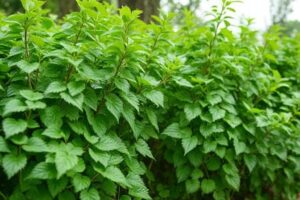Herbs and Their Aromatherapy Properties: Exploring the Connection
Herbs have been used for centuries for their therapeutic properties, and their connection to aromatherapy is a fascinating area of study. Aromatherapy involves using the aromatic compounds of plants, including herbs, to promote physical and emotional well-being. The scents of herbs have a powerful impact on our senses, triggering various physiological and psychological responses.
Each herb possesses its own unique combination of therapeutic properties, making them suitable for specific uses in aromatherapy. For instance, lavender is known for its calming and soothing properties, making it popular for reducing anxiety and promoting relaxation. Rosemary, on the other hand, is believed to improve concentration and enhance mental clarity. By understanding the distinctive aromatherapy properties of various herbs, we can explore their potential in improving our overall well-being.
• Lavender: known for its calming and soothing properties, reduces anxiety and promotes relaxation
• Rosemary: improves concentration and enhances mental clarity
• Peppermint: invigorating scent that stimulates the mind and aids in digestion
• Eucalyptus: clears congestion and promotes respiratory health
• Chamomile: promotes relaxation, relieves stress, and aids in sleep
• Lemon balm: uplifts mood, reduces nervousness, and supports digestive health
• Frankincense: induces a sense of tranquility, deepens breathing, and boosts immune system function
Understanding the specific aromatherapy properties of different herbs allows us to harness their potential benefits. By incorporating these herbs into our daily lives through various methods such as essential oils or herbal teas, we can enhance our overall well-being. The scents of these herbs have the power to influence our emotions by triggering memories or creating new associations. This connection between scent and emotion is what makes aromatherapy so powerful.
In addition to their emotional impact, herbs used in aromatherapy also have physical benefits. For example:
– Lavender has been shown to reduce blood pressure levels.
– Peppermint can relieve headaches when applied topically.
– Eucalyptus oil helps alleviate symptoms of respiratory conditions like asthma or bronchitis.
These are just a few examples of how herbs used in aromatherapy can positively affect our physical health. It’s important to note that while natural remedies like these can be beneficial for many people, it’s always best to consult with a healthcare professional before using them as an alternative treatment.
Overall, exploring the connection between herbs and their aromatherapy properties opens up a world of possibilities for improving our well-being naturally. Whether it’s finding calm with lavender or boosting focus with rosemary, incorporating these aromatic plants into our daily routines can have lasting effects on both body and mind. So next time you’re looking to enhance your well-being, consider turning to the power of herbs and their aromatherapy properties.
Understanding the Science Behind Aromatherapy and Herbs
Aromatherapy is a practice that involves using plant extracts, known as essential oils, to promote physical and psychological well-being. The scents of these essential oils can have a powerful effect on our brain and body. But what is the science behind aromatherapy and herbs?
Essential oils contain aromatic compounds that are extracted from various parts of plants, such as leaves, flowers, stems, and roots. These compounds are believed to have therapeutic properties that can affect our mood, emotions, and even physical health. When inhaled or applied topically, these compounds can enter our bloodstream and trigger certain physiological responses. For example, lavender essential oil, known for its calming properties, has been shown to reduce anxiety and promote relaxation. Similarly, peppermint essential oil has been found to improve focus and mental clarity. The science behind aromatherapy lies in these aromatic compounds and their interactions with our olfactory system, brain, and body.
• Aromatherapy involves using essential oils extracted from plants
• Essential oils contain aromatic compounds with therapeutic properties
• These compounds can affect mood, emotions, and physical health
• Inhaling or applying essential oils allows them to enter the bloodstream
• Lavender oil reduces anxiety and promotes relaxation
• Peppermint oil improves focus and mental clarity
• Aromatherapy works through interactions with our olfactory system, brain, and body
Different Methods of Using Herbs for Aromatherapy
When it comes to using herbs for aromatherapy, there are various methods to choose from. One popular method is inhalation, where the aroma of the herbs is inhaled directly. This can be achieved by adding a few drops of essential oil extracted from the herbs to a diffuser or by simply placing a few drops onto a tissue or cotton ball. Inhaling the aromatic scent can have a direct impact on the olfactory system, which is connected to the brain and can stimulate various physiological and psychological responses.
Another method is through topical application, where the herbs are applied directly onto the skin. This can be done by diluting essential oils with a carrier oil, such as coconut or jojoba oil, and massaging it onto the skin. The oils can be used for full-body massages or applied to specific areas for targeted relief. Topical application allows the active compounds in the herbs to be absorbed through the skin and enter the bloodstream, providing localized or systemic benefits. It is important to note that proper dilution and sensitivity testing should be conducted to avoid skin irritations or allergic reactions.
• Inhalation is a popular method of using herbs for aromatherapy
• A few drops of essential oil can be added to a diffuser or placed on a tissue or cotton ball
• Inhaling the aroma stimulates the olfactory system and can have physiological and psychological effects
• Topical application involves applying herbs directly onto the skin
• Essential oils can be diluted with carrier oils and used for massages or targeted relief
• Active compounds are absorbed through the skin and provide localized or systemic benefits
• Proper dilution and sensitivity testing should be done to avoid skin irritations or allergic reactions
Popular Herbs for Aromatherapy and Their Benefits
Lavender is one of the most popular herbs used in aromatherapy. Its soothing and calming properties make it widely used for relaxation and stress relief. Inhaling the aroma of lavender oil can help reduce anxiety and promote a sense of calmness. It is also known to aid in improving sleep quality, making it a popular choice for those struggling with insomnia or sleep disturbances.
Peppermint is another widely used herb in aromatherapy. Its invigorating scent can help boost energy levels and improve mental alertness. Inhaling peppermint oil can also provide relief from headaches and migraines due to its cooling effect. Additionally, peppermint oil is known for its ability to aid digestion and relieve nausea. Its refreshing aroma makes it a popular choice for enhancing mood and mental well-being.
• Lavender is popular for relaxation and stress relief
• Inhaling lavender oil can reduce anxiety and promote calmness
• It aids in improving sleep quality, helping with insomnia or sleep disturbances
• Peppermint is widely used to boost energy levels and improve mental alertness
• Its invigorating scent provides relief from headaches and migraines
• Peppermint oil aids digestion and relieves nausea
• Its refreshing aroma enhances mood and mental well-being
Exploring the Psychological Benefits of Aromatherapy with Herbs
Aromatherapy, the use of essential oils derived from plants for therapeutic purposes, has been practiced for centuries to promote physical and psychological well-being. When combined with the power of herbs, aromatherapy becomes even more effective in addressing various psychological concerns. The psychological benefits of aromatherapy with herbs are vast, offering a natural and holistic approach to supporting emotional health.
One of the key psychological benefits of aromatherapy with herbs is stress relief. Certain herbs, such as lavender and chamomile, possess properties that can help reduce anxiety and promote relaxation. The gentle, soothing scents of these herbs have the ability to calm the mind and alleviate stress, making them valuable tools in managing daily pressures and promoting overall well-being. Additionally, herbs like rosemary and peppermint can enhance mental clarity and focus, providing an invigorating boost to combat mental fatigue and improve cognitive function. The combination of these aromatic herbs in aromatherapy can have a positive impact on psychological well-being, creating an environment of tranquility and mental rejuvenation.
• Lavender and chamomile herbs can reduce anxiety and promote relaxation
• Rosemary and peppermint herbs enhance mental clarity and focus
• Aromatherapy with these herbs creates a tranquil environment for mental rejuvenation
The Role of Herbs in Promoting Relaxation and Stress Relief
Herbs have long been recognized for their ability to promote relaxation and relieve stress. They contain active compounds that work synergistically to calm the mind and body, helping to alleviate tension and anxiety. One popular herb known for its relaxing properties is lavender. Its sweet, floral scent has a soothing effect on the nervous system, making it an ideal choice for promoting relaxation. Lavender can be used in various forms, such as essential oil, dried flowers, or even as a herbal tea, allowing you to incorporate it into your daily routine for stress relief.
Another herb often used for relaxation and stress relief is chamomile. Chamomile has been used for centuries as a natural remedy to calm the nerves and promote restful sleep. It is known for its mild sedative properties, making it an excellent choice for those struggling with anxiety or insomnia. Chamomile tea is a popular way to enjoy the benefits of this herb, as it can be sipped before bedtime to help relax the mind and promote a sense of calm. Additionally, chamomile essential oil can be used in aromatherapy to create a calming atmosphere in your home or office, providing a natural way to reduce stress and promote relaxation.
• Lavender is a popular herb known for its relaxing properties
• It has a soothing effect on the nervous system
• Lavender can be used in various forms such as essential oil, dried flowers, or herbal tea
• Chamomile is another herb often used for relaxation and stress relief
• It has been used for centuries to calm the nerves and promote restful sleep
• Chamomile tea is a popular way to enjoy its benefits before bedtime
• Chamomile essential oil can be used in aromatherapy to create a calming atmosphere
Enhancing Sleep Quality with Aromatherapy Herbs
Aromatherapy has long been hailed for its ability to promote relaxation and improve sleep quality. When it comes to enhancing sleep, certain herbs have been found to be particularly effective. Lavender, for example, is a popular herb used in aromatherapy for its calming properties. Studies have shown that inhaling lavender oil before bedtime can help improve the quality and duration of sleep. Additionally, chamomile is another herb known for its soothing effects on the body and mind. Whether used in the form of essential oil or tea, chamomile can help relax the mind, relieve anxiety, and facilitate a better night’s sleep.
In addition to lavender and chamomile, other herbs such as valerian and bergamot have also been found to aid in enhancing sleep quality. Valerian root is commonly used in herbal teas and supplements to promote relaxation and improve sleep. It contains compounds that have a sedative effect on the central nervous system, helping to calm the mind and body before bedtime. Bergamot, on the other hand, is a citrus fruit known for its uplifting scent. Its essential oil is often used in aromatherapy to relieve anxiety and promote a restful sleep. By incorporating these herbs into your bedtime routine, you may be able to enjoy a more peaceful night’s sleep and wake up feeling refreshed and rejuvenated.
– Lavender is a popular herb used in aromatherapy for its calming properties
– Inhaling lavender oil before bedtime can improve the quality and duration of sleep
– Chamomile is another herb known for its soothing effects on the body and mind
– Chamomile can be used in the form of essential oil or tea to relax the mind, relieve anxiety, and facilitate better sleep
– Valerian root is commonly used in herbal teas and supplements to promote relaxation and improve sleep
– Valerian root contains compounds that have a sedative effect on the central nervous system, helping to calm the mind and body before bedtime
– Bergamot is a citrus fruit known for its uplifting scent
– Bergamot essential oil is often used in aromatherapy to relieve anxiety and promote restful sleep
– Incorporating these herbs into your bedtime routine may result in a more peaceful night’s sleep
-Waking up feeling refreshed and rejuvenated.
Boosting Mood and Mental Well-being with Aromatherapy Herbs
Lavender is one of the most popular herbs used in aromatherapy for boosting mood and enhancing mental well-being. Its delicate floral scent is known for its calming and soothing effects on the mind. Studies have shown that inhaling lavender essential oil can help reduce anxiety, stress, and depression. The aroma of lavender has also been found to promote relaxation, improve sleep quality, and uplift the mood. Whether used in diffusers, bath salts, or massage oils, incorporating lavender into your aromatherapy routine can provide a sense of calm and balance to help improve your overall mental well-being.
Another herb that has been widely studied for its mood-enhancing properties is bergamot. Derived from the rind of the bergamot orange, bergamot essential oil has a citrusy and refreshing scent that can help alleviate symptoms of anxiety and depression. Research has shown that inhaling bergamot oil can have a positive impact on mood and reduce stress levels. It is believed that the aroma of bergamot helps stimulate the production of serotonin, a neurotransmitter associated with happiness and well-being. Using bergamot in your aromatherapy practice may help boost your mood and provide a natural remedy for stress-related symptoms.
• Lavender is known for its calming and soothing effects on the mind.
• Inhaling lavender essential oil can help reduce anxiety, stress, and depression.
• The aroma of lavender promotes relaxation, improves sleep quality, and uplifts mood.
• Incorporating lavender into your aromatherapy routine can provide a sense of calm and balance.
• Bergamot essential oil has a citrusy and refreshing scent that can alleviate symptoms of anxiety and depression.
• Inhaling bergamot oil has been shown to have a positive impact on mood and reduce stress levels.
• Bergamot helps stimulate the production of serotonin, a neurotransmitter associated with happiness and well-being.
• Using bergamot in aromatherapy may boost mood and provide a natural remedy for stress-related symptoms.
Herbs for Aromatherapy: Addressing Common Health Concerns
One of the main reasons why people turn to aromatherapy herbs is to address common health concerns. Certain herbs have been traditionally used for their therapeutic properties and can provide relief for various ailments. For instance, lavender is widely known for its calming effects and is often used to alleviate symptoms of anxiety and insomnia. Similarly, peppermint is commonly used to soothe digestive issues such as indigestion or nausea. By incorporating these herbs into aromatherapy practices, individuals can potentially find natural remedies for their health concerns.
In addition to lavender and peppermint, other herbs have also shown promising effects in addressing common health concerns. Eucalyptus, for example, is renowned for its ability to clear the respiratory system and relieve symptoms of congestion. Tea tree oil, on the other hand, is popular for its antibacterial and antifungal properties, making it a suitable choice for addressing skin conditions like acne or fungal infections. These herbs, along with many others, offer a natural and holistic approach to managing various health issues through the power of aromatherapy.
• Lavender is known for its calming effects and can alleviate symptoms of anxiety and insomnia.
• Peppermint is commonly used to soothe digestive issues such as indigestion or nausea.
• Eucalyptus clears the respiratory system and relieves congestion.
• Tea tree oil has antibacterial and antifungal properties, making it suitable for addressing skin conditions like acne or fungal infections.
Using Herbs in Aromatherapy: Precautions and Safety Measures
Before incorporating herbs into your aromatherapy routine, it’s essential to understand the precautions and safety measures involved. While herbs can offer numerous benefits, certain precautions must be taken to ensure a safe and enjoyable experience. Firstly, it’s crucial to research each herb thoroughly to understand its specific properties, potential side effects, and contraindications. Some herbs may interact with medications or have adverse effects on individuals with certain health conditions. This knowledge will help you determine whether a particular herb is suitable for your needs and health profile.
Another important aspect is to always use high-quality herbs from reputable sources. Ensure that the herbs are organic, free from pesticides, and have been properly processed and stored. Additionally, consider your personal sensitivities or allergies to certain herbs. It is recommended to perform a patch test before using a new herb to check for any adverse reactions. It’s also advisable to start with low concentrations and gradually increase if necessary, as some herbs can be potent and may cause skin irritation or other unwanted effects. Lastly, consult with a qualified aromatherapist or healthcare professional before incorporating herbs into your aromatherapy practice, especially if you have any underlying health conditions or if you are pregnant or breastfeeding. Their expertise will help ensure the safe and effective use of herbs in your aromatherapy routine.
• Research each herb thoroughly to understand its properties, side effects, and contraindications
• Ensure that the herbs are organic, free from pesticides, and properly processed and stored
• Perform a patch test before using a new herb to check for adverse reactions
• Start with low concentrations of herbs and gradually increase if necessary
• Consult with a qualified aromatherapist or healthcare professional before incorporating herbs into your practice











